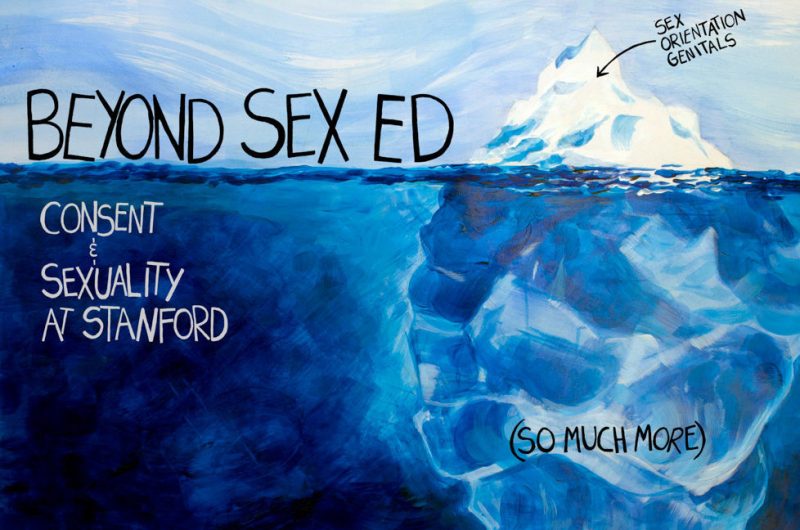At New Student Orientation, all incoming frosh and transfers experience Beyond Sex Ed: Consent and Sexuality, promising to be “a transformative experience for incoming first-year undergraduates at Stanford, which features personal stories from current students, supported by a framework for thinking about sexuality interpersonally and culturally.” I, however, found the experience to be truly horrifying. To be fair, I took a sexuality class at my (Jesuit) high school taught by a raunchy grandmother, thus making it possibly the best sex ed ever. But I went into Beyond Sex Ed thinking, “How bad can this really be? They’re trying to make it less awkward for us, right?” Wrong.
We started the session by closing our eyes and imagining various things, similar to meditation. We were asked to taste a lemon, smell sweet grass and imagine the feeling of pleasure. No, I’m not kidding. The woman leading the session had an incredibly therapeutic voice. In fact, I almost fell asleep listening to it, until she said the words “skin hunger.” Now, what is skin hunger? Skin hunger is defined by Psychology Today as “deep longing and aching desire for physical contact with another person.” (However, skin hunger makes me think more of cannibalism.) The woman proceeded to talk about how skin hunger can be satisfied by contact sports. Now we know football players are really just skin hungry.
The student presenters at Beyond Sex Ed were amazing. They told engaging and incredibly relatable stories that made audience members both laugh and cry. Their tales brought up large issues that should be addressed in sex ed: consent, asking for consent and times of uncertainty in relationships. The student storytellers gave the leader an incredible opportunity to discuss these issues, but she failed to do so.
It seemed as though the coordinator checked all the boxes by choosing student storytellers that touched upon the big themes, but the coordinator never actually talked about these themes directly, meaning they were only mentioned in the context of a story. The coordinator missed the opportunity to expand upon these themes and truly educate. Let’s be real — we have all taken sex ed more than once, and in order to fully go “beyond sex ed,” the coordinator needed to educate students in the most vital places.
Beyond Sex Ed had the opportunity to teach all incoming freshmen about how to ask for consent, how to give consent, what to do when you don’t know if you should consent and how to navigate someone saying no. It failed to do all of these things during the opportunity to educate the entire incoming class at once. The session made the discussion surrounding sex even more exceptionally awkward, which is counterproductive because in order for students to feel comfortable asking for consent and giving or not giving it, students need to be able to comfortably talk about sex.
In the midst of Chanel Miller coming forward and publishing her memoir, all eyes are on Stanford. The intense media coverage surrounding sexual assault at Stanford makes the threat seem incredibly real and ever-present. Incoming students are arriving fearing for their safety on campus. Although consent is taught in the mandatory pre-Stanford online course, most students simply check the boxes and click through without paying any attention or taking the time to learn. Beyond Sex Ed needed to reiterate the importance of consent and how to ask for it in appropriate ways, but it failed to do so, leaving another incoming Stanford class without the necessary education that consent is black and white.
Contact Katie Buntic at [email protected].
